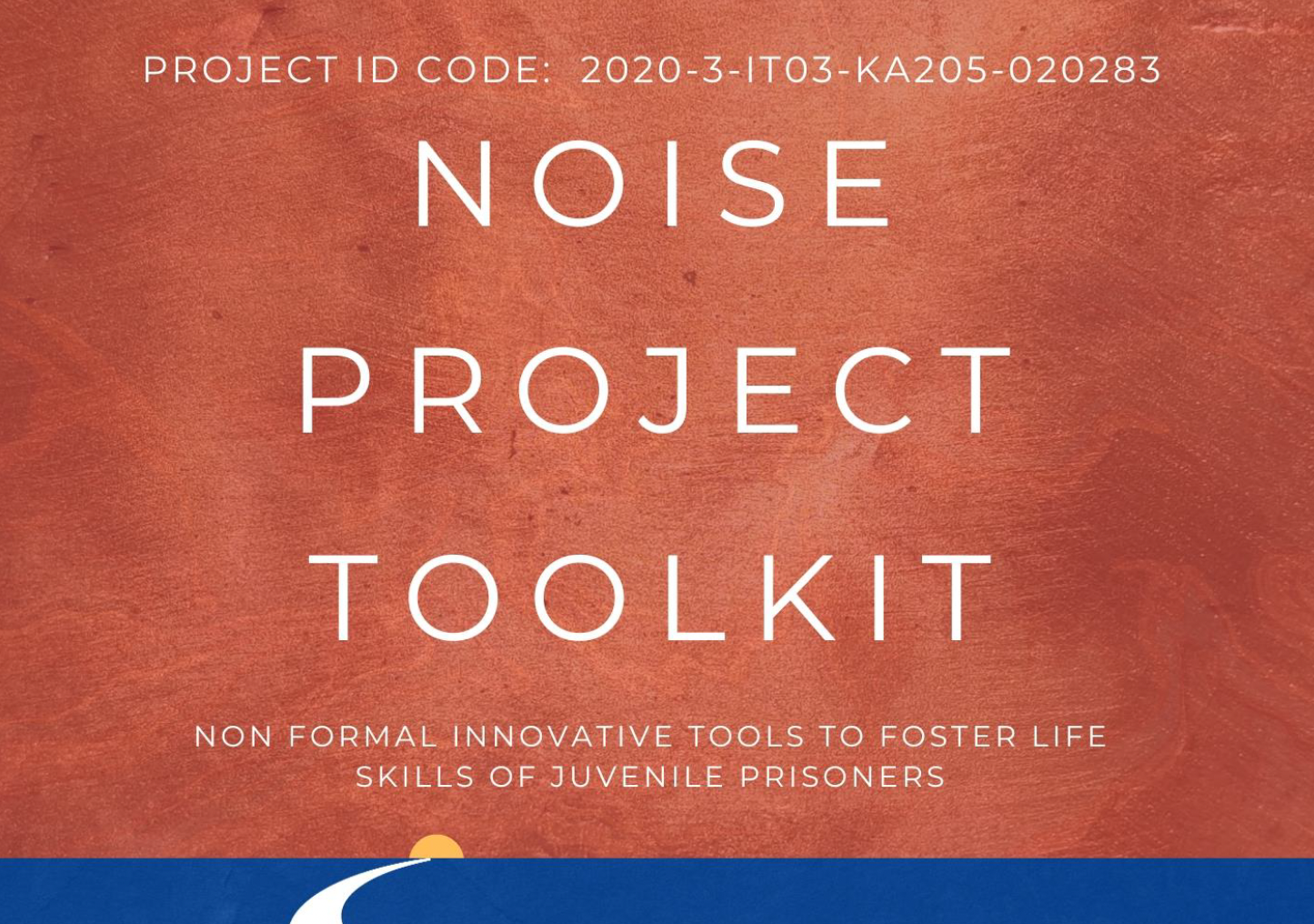
Associazione Culturale Pro.M.E.T.EU.S. is proud to present:
NOISE Project Toolkit: Non Formal Innovative Tools To Foster Life Skills Of Juvenile Prisoners.
The NOISE Project offers innovative solutions for young offenders through its comprehensive toolkit, designed to foster essential life skills and reduce recidivism. This unique initiative brings together an alliance of experts and organizations, pooling their knowledge to create impactful non-formal educational tools tailored for juvenile rehabilitation.
Download the Noise toolkit here:
Collaborative Expertise and Vision
The Società Italiana di Medicina e Sanità Penitenziaria (SIMSPe-Onlus) plays a crucial role in advancing penitentiary medicine and healthcare. Their expertise is vital in addressing the physical and health needs of young offenders, ensuring a robust foundation for rehabilitation.
Similarly, Freedom Gate Greece (FGG) focuses on reintegrating offenders into society by providing essential services like counseling and job orientation. Their efforts are pivotal in addressing the social challenges these individuals face.
The Dione Association in Cyprus emphasizes cultural engagement and EU project participation, fostering a broader sense of community and inclusion among the youth.
Pro.M.E.T.EU.S, based in Italy, and the NGO Home of Psychological Ideas, enrich the toolkit with their focus on psychological well-being and societal integration, offering non-formal education and training tailored to build resilience and positive personality traits.

Methodological Approach

The NOISE Toolkit’s development was informed by both qualitative and quantitative research conducted across multiple European countries. This research identified the specific needs and challenges faced by young offenders, forming a basis for the toolkit’s content. The project integrates criminological theories, educational methodologies, and psychological insights, providing a holistic approach to rehabilitation.
Key Frameworks and Strategies
Central to the toolkit is the use of non-formal education methods. These are especially beneficial for individuals who have struggled within traditional educational systems. Techniques such as experiential and participatory learning enable young offenders to actively engage in their educational process, enhancing their learning experience and retention of essential life skills.
Life skills training within the toolkit includes conflict resolution, emotional regulation, and effective communication—skills crucial for daily challenges and social interactions.
The toolkit also emphasizes a holistic approach, integrating inputs from sociology, psychology, education, and criminology, ensuring comprehensive care and support for the rehabilitation of young offenders.

Stakeholder Engagement and Joint Training Events

Recognizing the importance of community and stakeholder involvement, the NOISE Project has hosted several Joint Staff Training Events (JSTEs) in partner countries. These events have been instrumental in exchanging best practices and developing new strategies for engaging young offenders. Each event focused on different aspects of life skills—from trust building and social skills to citizenship and employability—providing a diverse range of tools and methods for practitioners.
The NOISE Toolkit represents a significant advancement in the field of juvenile rehabilitation. By combining expert knowledge, innovative non-formal education techniques, and comprehensive research, the toolkit offers a valuable resource for professionals working with young offenders. Its holistic approach not only aims at reducing recidivism but also ensures the well-being and successful reintegration of these individuals into society.


Leave a Reply